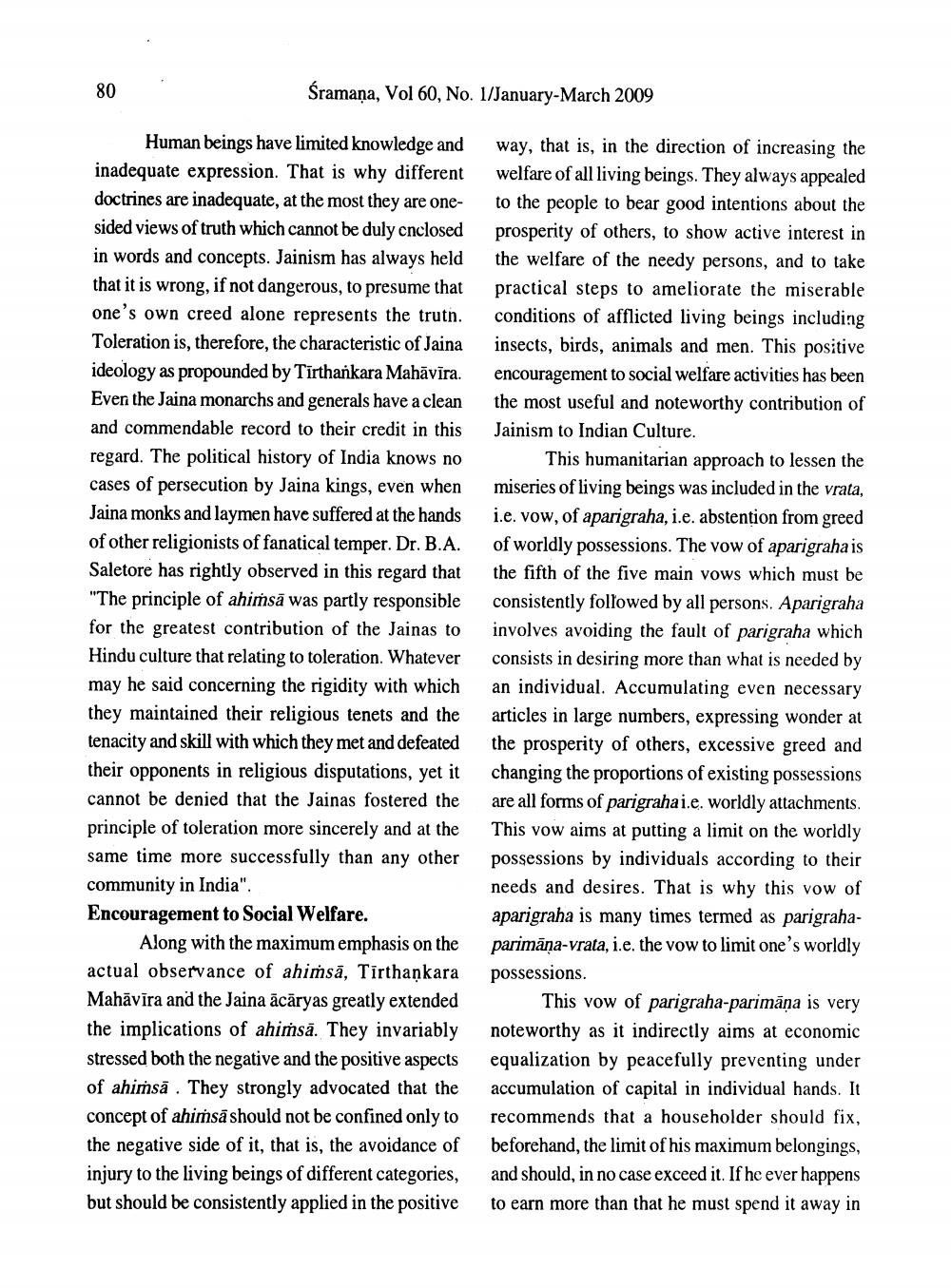________________
80
Śramana, Vol 60, No. 1/January-March 2009
Human beings have limited knowledge and inadequate expression. That is why different doctrines are inadequate, at the most they are one sided views of truth which cannot be duly enclosed in words and concepts. Jainism has always held that it is wrong, if not dangerous, to presume that one's own creed alone represents the trutn. Toleration is, therefore, the characteristic of Jaina ideology as propounded by Tīrthankara Mahāvīra. Even the Jaina monarchs and generals have a clean and commendable record to their credit in this regard. The political history of India knows no cases of persecution by Jaina kings, even when Jaina monks and laymen have suffered at the hands of other religionists of fanatical temper. Dr. B.A. Saletore has rightly observed in this regard that "The principle of ahiṁsā was partly responsible for the greatest contribution of the Jainas to Hindu culture that relating to toleration. Whatever may he said concerning the rigidity with which they maintained their religious tenets and the tenacity and skill with which they met and defeated their opponents in religious disputations, yet it cannot be denied that the Jainas fostered the principle of toleration more sincerely and at the same time more successfully than any other community in India". Encouragement to Social Welfare.
Along with the maximum emphasis on the actual observance of ahiṁsā, Tirthankara Mahāvīra and the Jaina ācāryas greatly extended the implications of ahissä. They invariably stressed both the negative and the positive aspects of ahiṁsā . They strongly advocated that the concept of ahimsa should not be confined only to the negative side of it, that is, the avoidance of injury to the living beings of different categories, but should be consistently applied in the positive
way, that is, in the direction of increasing the welfare of all living beings. They always appealed to the people to bear good intentions about the prosperity of others, to show active interest in the welfare of the needy persons, and to take practical steps to ameliorate the miserable conditions of afflicted living beings including insects, birds, animals and men. This positive encouragement to social welfare activities has been the most useful and noteworthy contribution of Jainism to Indian Culture.
This humanitarian approach to lessen the miseries of living beings was included in the vrata, i.e. vow, of aparigraha, i.e. abstention from greed of worldly possessions. The vow of aparigraha is the fifth of the five main vows which must be consistently followed by all persons. Aparigraha involves avoiding the fault of parigraha which consists in desiring more than what is needed by an individual. Accumulating even necessary articles in large numbers, expressing wonder at the prosperity of others, excessive greed and changing the proportions of existing possessions are all forms of parigrahai.e. worldly attachments. This vow aims at putting a limit on the worldly possessions by individuals according to their needs and desires. That is why this vow of aparigraha is many times termed as parigrahaparimāņa-vrata, i.e. the vow to limit one's worldly possessions.
This vow of parigraha-parimāņa is very noteworthy as it indirectly aims at economic equalization by peacefully preventing under accumulation of capital in individual hands. It recommends that a householder should fix, beforehand, the limit of his maximum belongings, and should, in no case exceed it. If he ever happens to earn more than that he must spend it away in




